For over two decades, Austrian-based company, Pro-Ject, has made a considerable impact on the turntable market. Their ability to create high-quality, minimalist turntables that deliver audiophile results without breaking the bank has won them a loyal following among the vinyl community. To learn more about the secrets behind their success, I spoke with the company’s CEO, Heinz Lichtenegger, about how the company—and the market—have evolved over the years. Speaking to Sound Matters under isolation from the current COVID pandemic madness, Heinz also reflects on the importance of music for our general well-being.
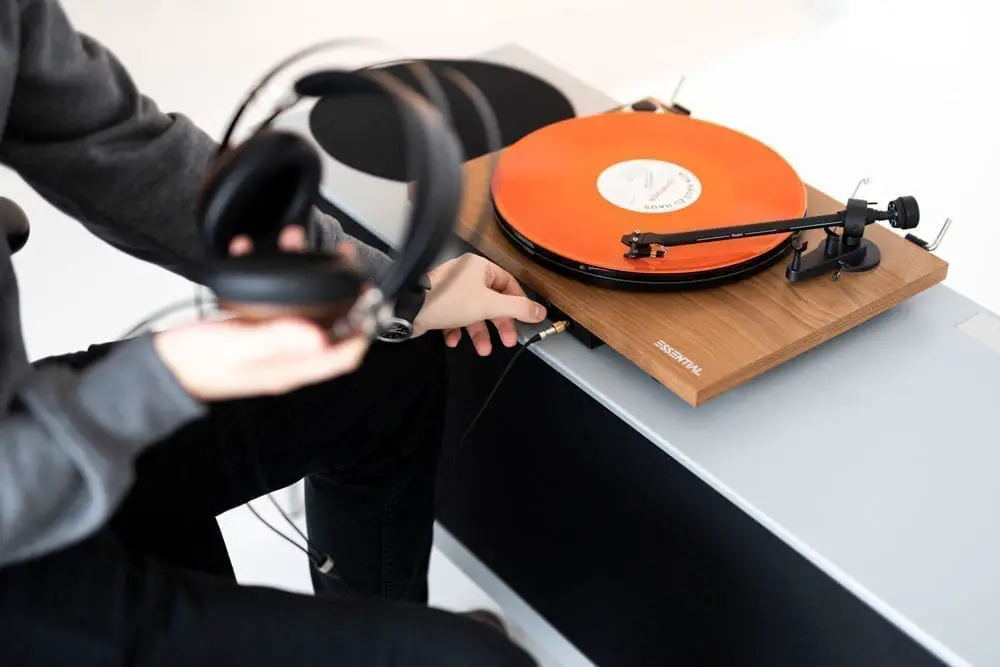
Pro-Ject started up during a real low-point for vinyl records (1991), what drove you to start a turntable business at this time?
The belief that vinyl records on an analog turntable just sound better. This was especially poignant at the time, as it was the only way to achieve an excellent high-quality stereo system. At the time, digital wasn’t as good as it is today, and it was also very expensive.
Simplicity is at the heart of what Pro-Ject do best. Can you tell us a little about this ethos?
In the beginning, I aimed to create a genuinely stunning sounding turntable for the lowest cost possible. This is made possible by getting rid of all bells and whistles and instead focusing on the core technological fundamentals. In addition, you also achieve an elegant, minimalistic design. In my experience, this has given Pro-Ject turntables a timeless quality; we’re not at the mercy of changing fashion.
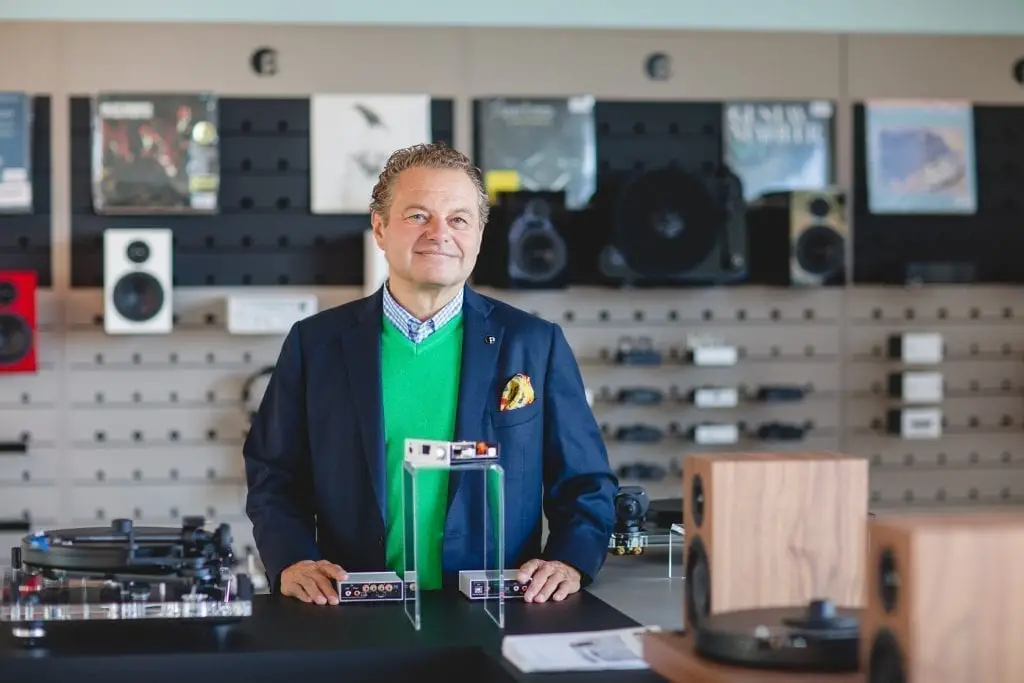
The turntable market is quite competitive now. How has the company evolved since the early days?
Competition is good, and it’s a compliment when I see other brands (such as Sony) releasing models that are influenced by my core design principles.
As long as the competition are producing turntables that deliver a fantastic sounding experience, it’s all good as far as I’m concerned. The way I see it, the growth of such products only creates a bigger market for everyone involved as more customers discover the joy of analog.
One area that does fill me with trepidation is the growth in ‘TOY-like’ turntables made from cheap plastic—often with a bad-sounding integrated speaker. These products ultimately leave the customer disappointed, giving them the impression that analog music is merely a fashion trend. Worst still, they can ruin your precious records.
“Vinyl records engage your senses beyond the ears: the touch of the LP, the beautiful artwork, and even the smell—it’s a piece of art! A great analog experience should deliver all of this and more.”
Heinz Lichtenegger – Pro-Ject CEO
Interestingly, making turntables appears to run in the family, as your wife also manufactures designs under the EAT (European Audio Team) brand. How do the two brands differ?
The best way to explain it is with an analogy from the car industry:
Pro-Ject is like Volkswagen, and EAT is like Porsche. We share the same technology platforms, but where Pro-Ject’s mission is to make high-quality analog playback accessible, EAT targets the more sleek and exclusive, high-end luxury market.
That’s not to say Pro-Ject isn’t high-end technology (after all we share the same platform), but with Pro-Ject, we always have an obtainable price-point in mind. EAT has a more luxury aesthetic, with some of the technical aspects turned up to the max; cost is far less front-of-mind here. The VW Touareg is a great car, but a Porsche Cayenne is everything and more.
Saying this, there are also some huge benefits when it comes to the materials, which would not be possible without the larger factory. All the base machines cost a fortune, but are mostly paid for by the huge volume of Pro-Ject. It enables us to manufacture very precise parts on a smaller scale. For example, if you make 10000 diamond-cut aluminum pulleys instead of just 100, the cost difference is then only the raw material, because the real cost is in programming the CNC machine.
Another benefit is that it encourages us to increase our overall production quality, because of the detail expected from the high-end market. All of this extra attention to manufacturing detail positively impacts both brands, so it’s the perfect collaboration.
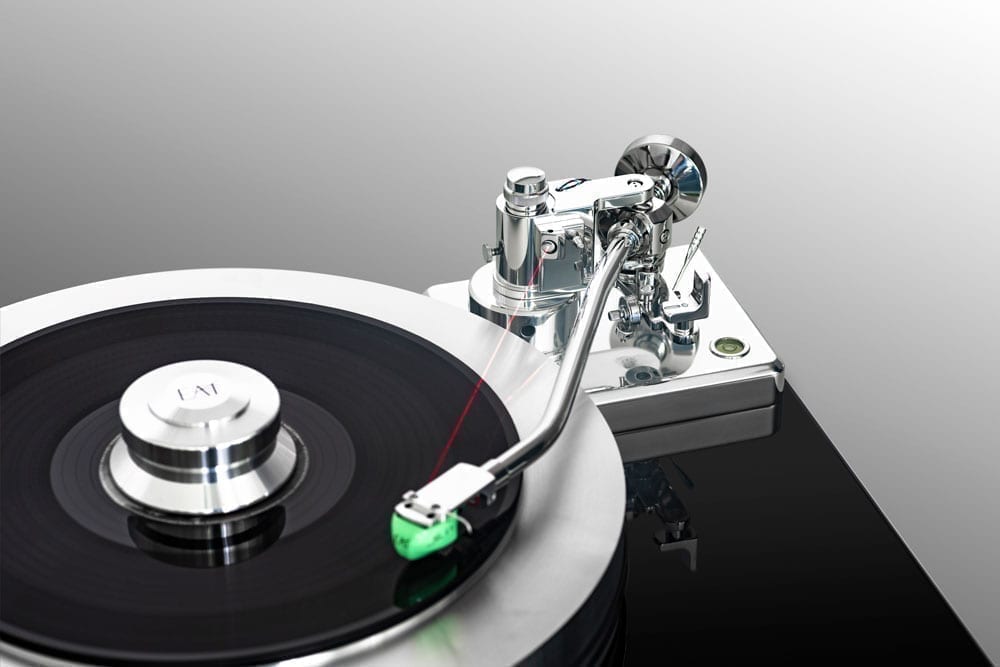
How would you personally define “a great analog experience”?
The analog experience is all about engagement; you’re just more in the music, because you make time for the finer details. Vinyl records engage your senses beyond the ears: the touch of the LP, the beautiful artwork, and even the smell—it’s a piece of art! A great analog experience should deliver all of this and more. Soundwise, I believe analog playback gives me a more natural, fluid way of listening. More colors and emotions.
Recent sales figures state that, in many cases, vinyl is now out-selling CD and digital downloads. The rise-and-rise of vinyl over the last decade has been nothing short of spectacular; how much further do you think it can go?
I think it all depends on how the market develops. For more than two decades, analog snowballed without any big advertisement, thanks to its natural allure. It was mostly driven by pure fascination and the sheer excitement of the whole experience. Nowadays, however, there are a lot of bad products in the market that leave consumers disappointed. So I do have some concerns about the very rapid growth.
I’ve made it my mission to fight against this trend as much as possible by telling customers what they should look for in a high-quality turntable.
I think, in the process, this has helped Pro-Ject gain the support of many happy vinyl lovers.
Clearly, in the digital realm, streaming is here to stay. Do you think this compliments vinyl in any way?
For sure, streaming is very important to the overall mix. Thanks to streaming, it is very easy to find new music. As an experience, though, streaming usually amounts to nothing more than background music. So when you stream a new piece of music you love, the best way to truly experience what it has to offer is to own a physical copy. For the best overall experience and sound quality, you need to buy the vinyl. So there we have it! Both worlds will coexist beautifully.
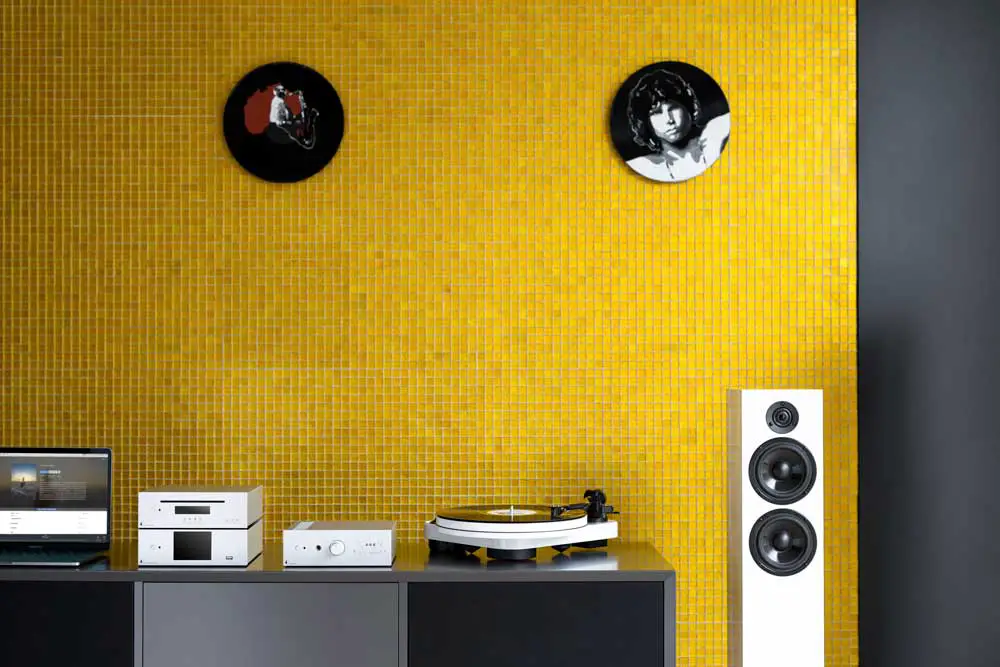
What future trends do you see for the vinyl industry in 2020 and beyond?
As briefly mentioned above, I have some concerns about the very rapid growth, but nevertheless, I am 100% sure that vinyl will be a focal point for the music industry and consumer listening habits.
I hope that young people who buy into vinyl will slowly understand that if they want to get the REAL analog experience, they need to buy proper speakers and a good amp. With this also has come a respect for physics and some understanding of the importance of speaker positioning. Even just getting the speakers in a 2/3 Triangle position to get the TRUE stereo sound with a concert-like feeling and a more 3D sound stage can go a long way. So TRUE STEREO is the next trend. Forget your multiroom, processed audio—listen to ANALOG IN STEREO.
Beyond this, on the new technology front, there is a new analog technology called HD-Vinyl, which is exciting. This will open up the door to new possibilities.
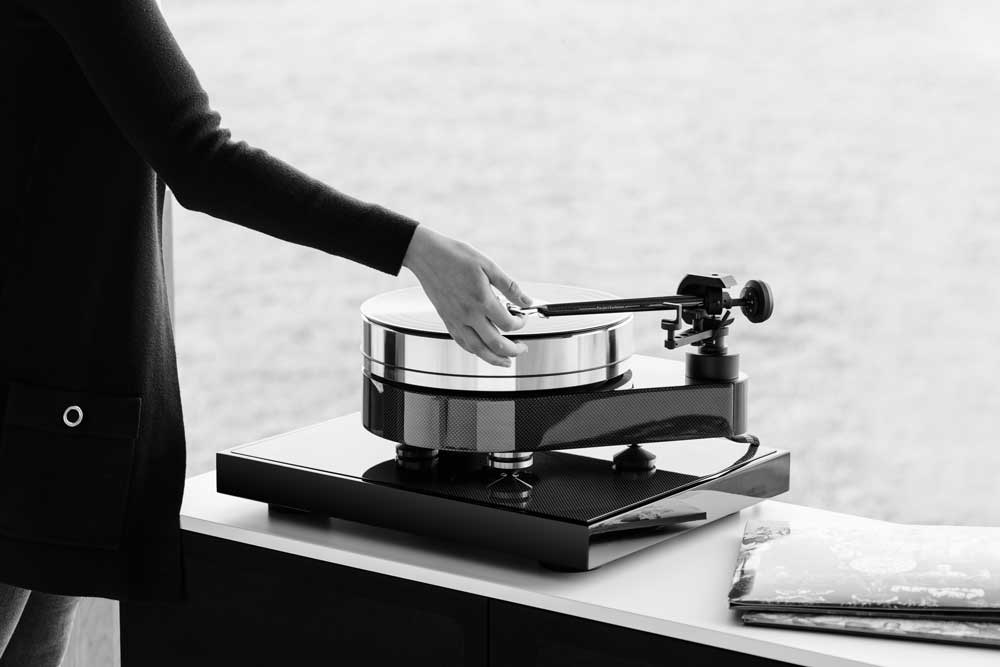
Lastly, if you could only listen to one record from this day forward, what would it be, and why?
Now that is a question I find too difficult to answer. There is so much great music out there from across human history. With around 80,000 records at home, I am determined to make sure I’ve heard all of them at least once.
Over the last few days, I’ve been in self-isolation at home, thanks to all the craziness going on. It’s given me the chance to listen to many records, which has really kept me sane in these tough times we find ourselves. I can only recommend that everyone listens to music, and especially on an outstanding analog system. Music is more important then ever and brings some light and happiness through moments of darkness.

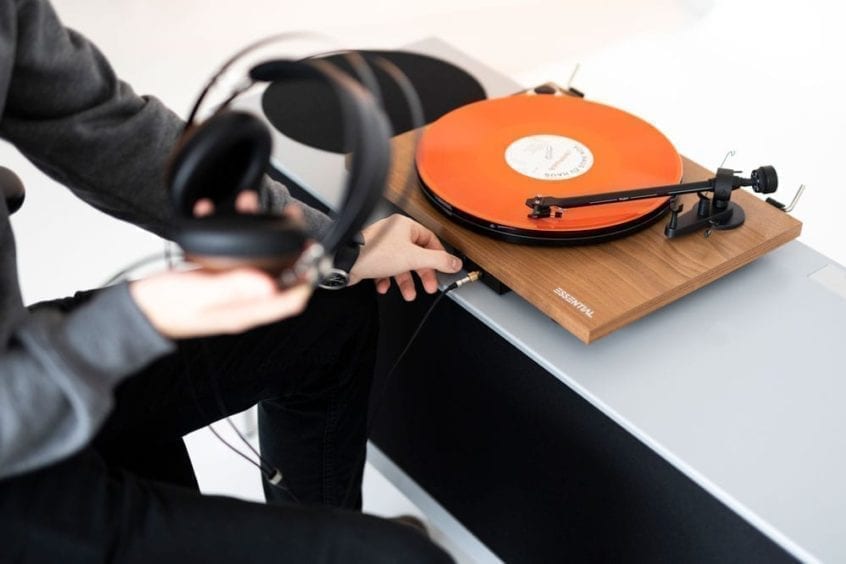


[…] in 1991, Pro-Ject CEO, Heinz Lichtenegger, took the bold decision to launch a new turntable design during a boom time for the CD format. […]